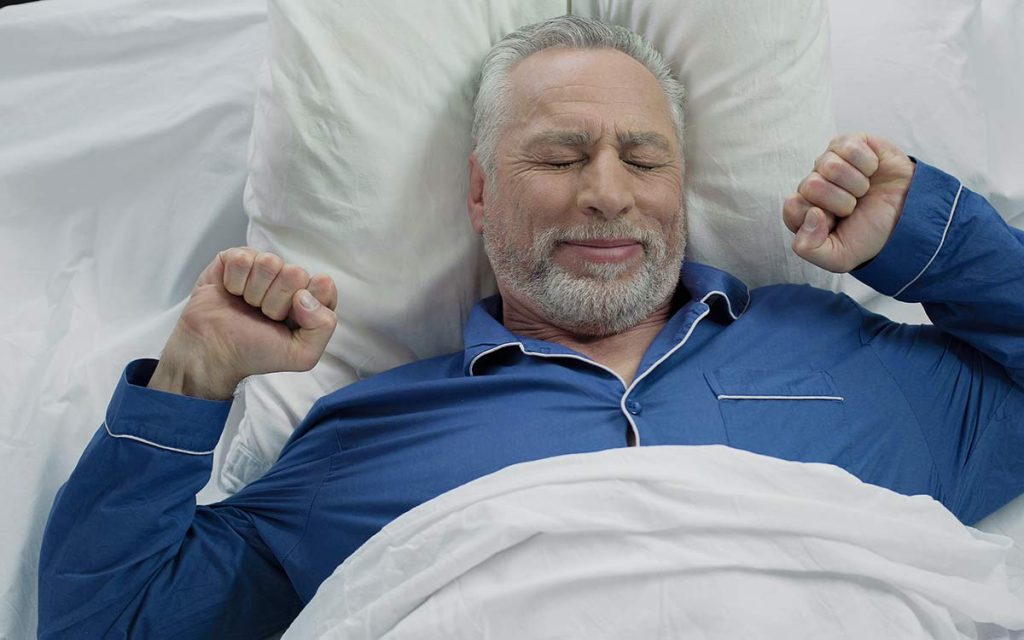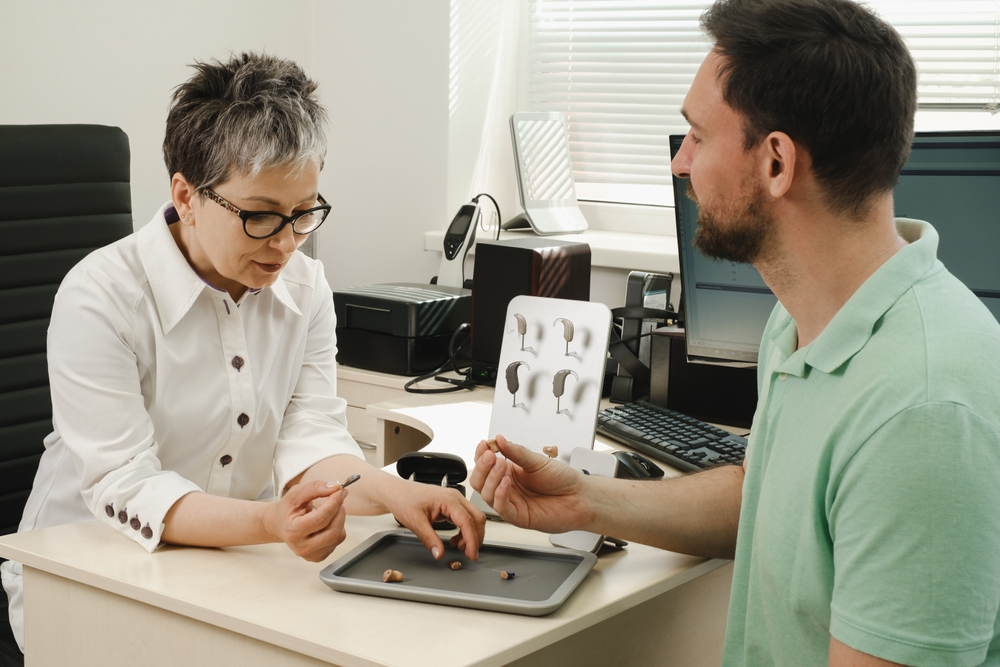Sleep is precious. Kids in college don’t get that; they stay up late and wake up early by choice. But you–you protect your sleep. If you don’t get a full, restful seven to eight hours of sleep, you wake up groggy and cranky, an unpleasant feeling that only three cups of coffee can keep at bay. So when your hearing loss began causing you to have insomnia, you were a little aghast.
Understandably so. Luckily, there’s a little something that can help: your hearing aid. According to surveys and research, these tiny devices may help you sleep better.
How does hearing loss affect sleep?
In recent days, you’ve noticed yourself tossing and turning more than usual, battling fatigue all day no matter how much sleep you get, and then having a hard time falling asleep at night (despite your exhaustion). All of these issues started around the same time you also started to notice that your radio, television, and mobile phone were becoming difficult to hear.
It turns out, you’re not imagining things. There is a well-documented connection between hearing loss and insomnia, even if the precise sources aren’t exactly clear. There are, of course, a couple of theories:
- Hearing loss is linked to depression, and depression can cause chemical imbalances in the brain that disrupt your sleep cycle. This makes it harder to fall asleep and stay asleep.
- As you develop hearing loss, your brain starts straining–it’s looking for inputs from your ears where none exist. If your brain is in overdrive trying to hear while you’re drifting off to sleep, your entire cycle could be thrown off (it’s that “my brain won’t shut off” issue).
- Tinnitus can cause you to hear ringing, thumping, and humming–and that noise can keep you awake at night. (Lack of sleep can also make your tinnitus worse, which can then cause stronger insomnia–it’s a vicious cycle).
Can hearing aids improve your sleep?
According to one study, 59% of people who were hearing aid users reported feeling satisfied with their sleep, compared to a 44% satisfaction rate in people who don’t wear hearing aids. So does that mean it’s safe to assume hearing assistance devices are also a kind of sleep aid?
Not exactly. If your hearing is perfectly normal, wearing hearing aids isn’t going to cure your insomnia.
But if you are suffering from hearing loss, your hearing aids can address several issues that may be contributing to your insomnia:
- Isolation: If you’re out and about, connecting with the people in your social sphere, you’re less likely to feel isolated and depressed. Hearing aids make maintaining relationships easier (this can also reduce “cabin fever”-related sleep cycle problems).
- Strain: Your hearing aids will effectively diminish the strain on your brain (yep, that rhymes, sorry). And when your brain isn’t always straining to hear everything around you, it’ll be less likely to continue that practice when you’re trying to sleep.
- Tinnitus: Depending on the cause and nature of your tinnitus, hearing aids may offer relief for tinnitus.
Achieving better quality sleep using hearing aids
It’s not just the number of hours that’s important here. In order for your sleep to be truly rejuvenating, you need to reach a certain depth to your z’s. Hearing loss can prevent that deep sleep–and hearing aids, therefore, can improve your ability to achieve restful sleep.
It’s important to note that, even though they’ll help improve your sleep, most hearing aids are not intended to be worn overnight. They don’t help you hear better when you’re sleeping (for example, you won’t hear your alarm clock more clearly). It’s wearing them during the day that helps you get better sleep.
Go to bed!
Sleep is precious to you–but not everyone shares that sentiment. There are people out there who don’t know that sleep is vital for your continued health. Ample sleep can keep your immune system in fighting shape, reduce stress levels, and help you think more clearly. Healthy sleep habits have even been linked to reduced risks for heart disease and diabetes.
When your hearing loss begins to disrupt your sleep schedule, the issue becomes more than irritating–insomnia can often become a real health concern. Thankfully, most surveys report that people with hearing aids report better quality of sleep. And if there’s anything we’ve learned today, it’s this: sleep is even more precious than you originally thought.



